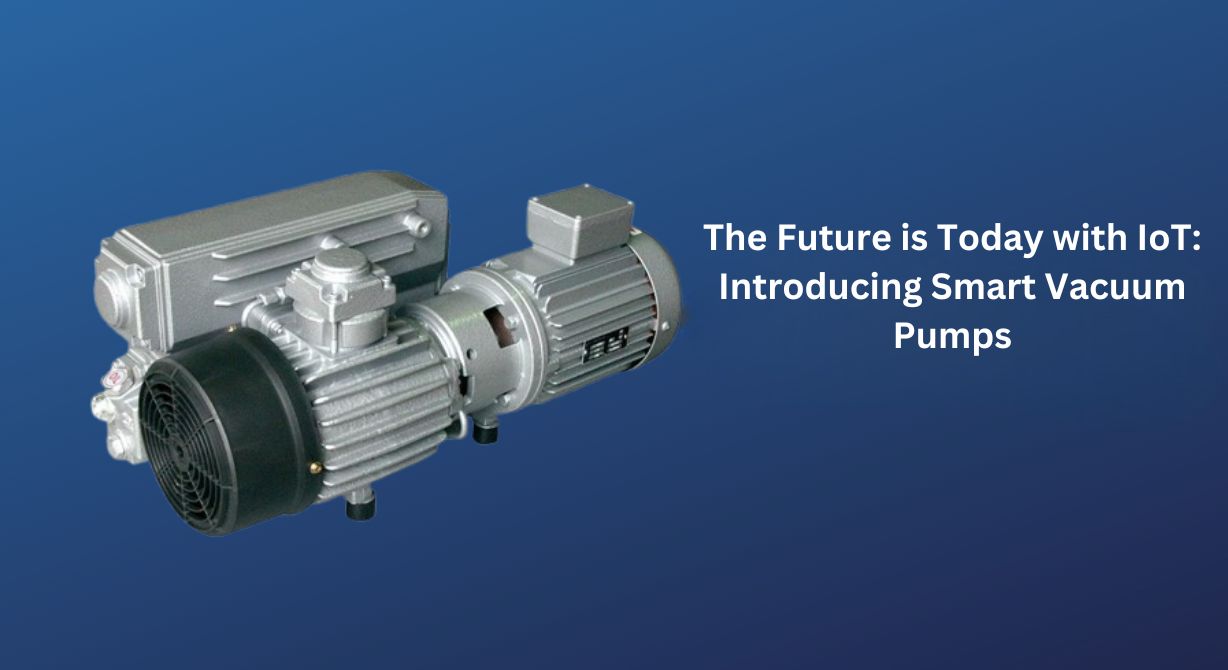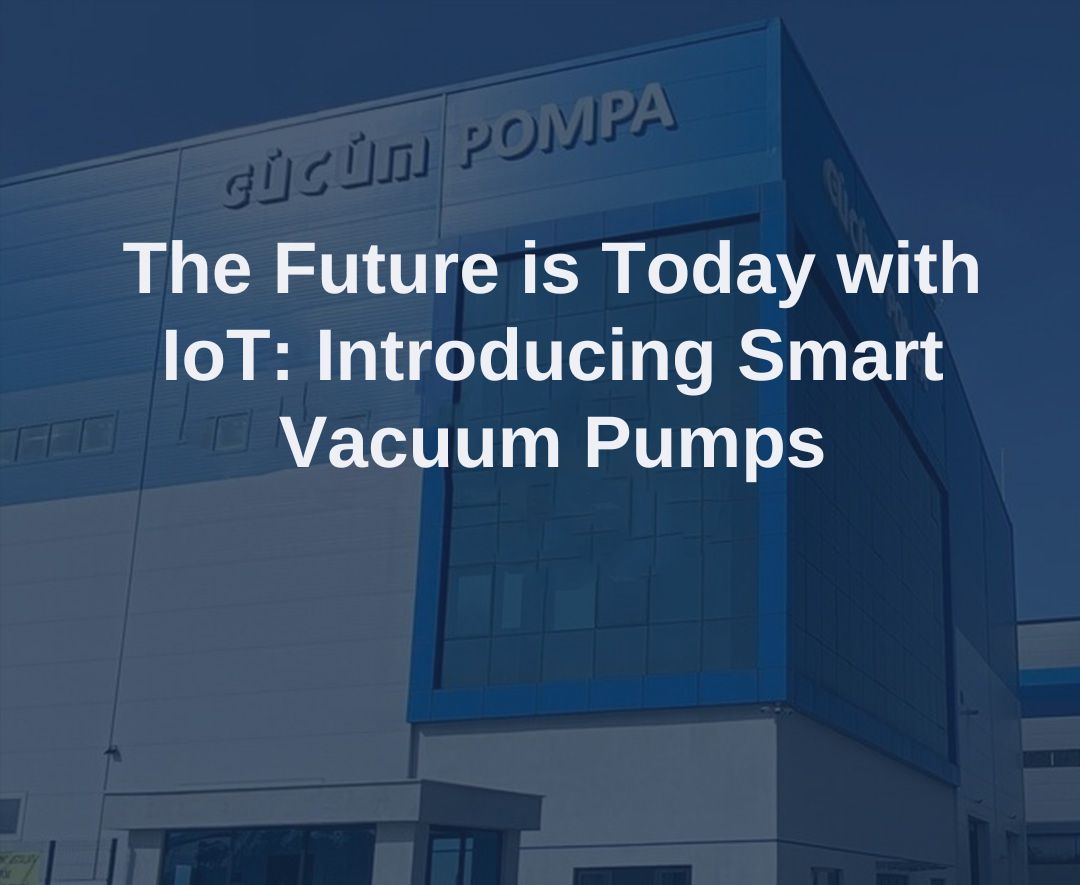The Future is Today with IoT: Introducing Smart Vacuum Pumps
Table of Contents
- What Are Smart Vacuum Pumps? The Revolution Brought by IoT Technology
- IoT-Enabled Vacuum Pumps: How They Boost Performance in Industry
- Step-by-Step Smart Vacuum Pump Selection: Efficiency in the IoT Era
- IoT and Vacuum Pumps: Comparison with Traditional Models
- Why Are Smart Vacuum Pumps the Future of Industry? Expert Opinions
- Vacuum Pump Maintenance with IoT: Failure Prevention Technologies
What Are Smart Vacuum Pumps? The Revolution Brought by IoT Technology
Smart vacuum pumps are modern devices equipped with IoT technology that go beyond traditional vacuum pumps. These pumps revolutionize industrial processes thanks to their internet connectivity and data collection capabilities. IoT-enabled vacuum pumps offer businesses great advantages such as real-time performance monitoring, remote control, and proactive maintenance.
These smart systems are equipped with sensors that continuously monitor critical parameters like temperature, pressure, and vibration. The collected data is sent to cloud-based platforms and analyzed using advanced algorithms. Thus, failures can be predicted in advance and maintenance can be performed before problems arise. This approach ensures uninterrupted production lines and minimizes unexpected downtime.
IoT technology also increases energy efficiency. Smart vacuum pumps automatically optimize based on usage intensity, preventing unnecessary energy consumption. This contributes both to environmental sustainability and reduces operating costs.
Remote access allows technical teams to monitor pump performance from different locations. This enables rapid response to issues and minimizes on-site downtime. Additionally, software updates keep devices constantly up to date with the latest technology.
In conclusion, smart vacuum pumps have evolved from being mere mechanical devices into the central units of data-driven and connected industrial solutions.
IoT-Enabled Vacuum Pumps: How They Boost Performance in Industry
IoT-enabled vacuum pumps are advanced technology devices developed to enhance performance in industrial operations. These smart vacuum pumps operate much more efficiently than traditional pumps thanks to real-time data collection and analysis capabilities. Sensors continuously monitor critical values such as temperature, pressure, and vibration and transmit them to cloud-based systems.
This allows businesses to track the condition of their pumps instantly and quickly detect and intervene in performance issues. Preventive maintenance strategies reduce the risk of failure and minimize unplanned downtime. Thus, production line disruptions are prevented, increasing efficiency.
Energy efficiency is another prominent advantage of IoT-enabled vacuum pumps. Smart control systems optimize pump operating conditions and prevent unnecessary energy consumption. This supports both environmental sustainability and lowers operating costs.
Remote access capabilities allow technical teams to manage pumps from different locations and provide quick solutions to problems. Also, software updates keep devices constantly updated and integrate new features. This increases the long-term value of the investment.
In summary, IoT-enabled vacuum pumps play a critical role in creating smarter, more efficient, and uninterrupted working environments in industry.
Step-by-Step Smart Vacuum Pump Selection: Efficiency in the IoT Era
Smart vacuum pump selection has become a critical decision for businesses especially in the IoT era. First, the required vacuum level and flow rate must be clearly determined. This is the fundamental step to ensure the pump’s suitability for operating conditions.
The second step is to evaluate the pump’s IoT features. Real-time data tracking, remote control, and preventive maintenance functions increase efficiency and reduce operational risks. At this point, the sensor quality and communication protocols of the selected device become important.
The third step is to consider energy consumption. Most smart vacuum pumps are designed to provide energy savings. Therefore, energy efficiency certifications and performance values should be compared.
The fourth step is to assess maintenance convenience and the availability of service networks. Models that offer remote intervention reduce maintenance costs and operational interruptions.
Finally, the manufacturer’s technical support and warranty terms should be taken into account. Proper support is a critical factor for long-term investment success.
By following these steps, maximum efficiency and reliability can be achieved in selecting a smart vacuum pump.
IoT and Vacuum Pumps: Comparison with Traditional Models
Traditional vacuum pumps have been standard in industry for many years. However, IoT-enabled vacuum pumps create a revolution in the sector with their advanced features. Firstly, while traditional models generally operate with manual control and simple automation systems, IoT technology enables real-time data tracking and remote management.
IoT-enabled vacuum pumps allow operators to monitor device performance instantly and predict possible failures in advance. This reduces maintenance costs while increasing efficiency. On the other hand, traditional pumps do not offer this level of foresight and control.
In terms of energy efficiency, IoT-enabled models are also a step ahead. Thanks to smart sensors and optimization algorithms, energy consumption can be adjusted according to actual needs. Traditional vacuum pumps often operate at a fixed speed, causing unnecessary energy waste.
While traditional vacuum pumps are preferred due to their lower cost and simpler structure, in the long term, the advantages offered by IoT-enabled models are more valuable in terms of operational efficiency and sustainability.
In conclusion, vacuum pumps equipped with IoT technology provide significant advantages over traditional models in terms of both performance and cost-effectiveness in industrial applications.
Why Are Smart Vacuum Pumps the Future of Industry? Expert Opinions
Smart vacuum pumps are increasingly coming to the forefront in industry. Experts state that this technology not only improves performance but also revolutionizes many areas from maintenance processes to energy efficiency. Smart models surpass the limitations of traditional vacuum pumps and, equipped with IoT technology, offer real-time monitoring and remote control.
This enables operators to track pump performance instantly, detect potential failures early, and prevent them. Experts emphasize that preventive maintenance provides uninterrupted production and cost savings. Additionally, these systems offer energy savings, supporting sustainability both environmentally and economically.
Smart vacuum pumps increase not only efficiency but also operator safety in industry. Integrated sensors immediately report possible hazards and allow quick intervention. This raises reliability on production lines.
Experts say that in the Industry 4.0 and digital transformation era, smart vacuum pumps are indispensable for the future. With the data provided by smart systems, businesses can make more accurate strategic decisions and gain competitive advantage.
In conclusion, smart vacuum pumps play a critical role in the future of industry in terms of performance, safety, and sustainability.

Vacuum Pump Maintenance with IoT: Failure Prevention Technologies
Traditional vacuum pump maintenance was usually limited to interventions after failures. However, thanks to IoT technology, maintenance processes have become more proactive and failure-preventive. Smart sensors and data analysis systems monitor pump performance 24/7 and can detect potential problems in advance.
This technology tracks parameters such as abnormal vibration, temperature fluctuations, or changes in oil level, preventing critical failures. Thus, unplanned downtime is minimized and maintenance costs are significantly reduced. Remote monitoring allows technical teams to analyze pump performance in real time and intervene quickly.
IoT-enabled vacuum pumps not only prevent failures but also optimize maintenance scheduling. This avoids unnecessary part replacements and labor losses. Additionally, data-driven maintenance systems provide operational efficiency and long service life to businesses.
With Industry 4.0, these technologies are revolutionizing vacuum pump maintenance. Thanks to smart systems, production interruptions decrease, and businesses achieve high performance while consuming less energy.
In conclusion, vacuum pump maintenance with IoT responds to the critical needs of modern industry by minimizing failure risks and optimizing operational costs.


